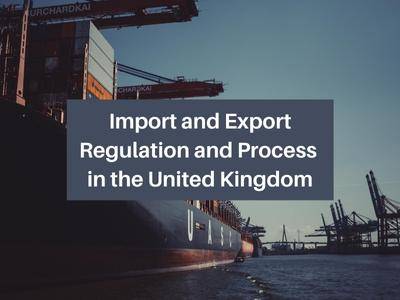Import and Export Regulation and Process in the United Kingdom
 A pocket guide from 3E Accounting on the import and export regulation and process in the United Kingdom.
A pocket guide from 3E Accounting on the import and export regulation and process in the United Kingdom.
National statistics for 2020 indicate that the United Kingdom’s imports and exports increased by GBP17.5 billion and GBP21.4 billion, respectively. The United Kingdom’s population of 67.9 million people makes it an ideal place to trade. Knowing the import and export regulation and process in the United Kingdom is crucial to ensure compliance.
Moving Goods
In ensuring trade balance, the world of commerce has revolved around the import and export of goods and services. Imports occur when a country buys goods and services from other parts of the world. Conversely, exports revolve around domestically produced goods and services being sold to other countries. These create outflows and inflows of funds, respectively, that in turn, drive global commerce.
In the United Kingdom, imports include fast-moving consumer goods (FMCGs), cars, machinery, etc. Top export categories include machinery, precious metals, as well as antiques and collectables. Its major import and export partners include China, Germany, Europe, etc. Import and export fall under the purview and governance of HMRC, the United Kingdom’s tax authority.
To ensure compliance, firms such as 3E Accounting offer assistance that can be of intrinsic value. The process can be complicated, especially for European countries now that the United Kingdom has left the EU. The rules and regulations are continually evolving to meet fast-changing global demand. A general guideline on processes and rules include:
Import of Goods and Services From the United Kingdom
- EORI number: Economic Operators Registration and Identification number. This is an identification number required by Customs for the movement of goods.
- ENS: this is an entry summary declaration which will include details of safety and security and has a time limit for submission.
- Submission of an electronic declaration to Customs.
Export of Goods and Services Into the United Kingdom
- EORI number: similar to the import of goods and required by Customs.
- REX registration: Registered Exporters System, the statement or certificate of origin, which can facilitate duty-free status in some instances.
- Customs declaration: for the movement of goods into or through the United Kingdom.
- EXS: this is an exit summary declaration and is similar in requirements to the ENS.
Value-added tax (VAT) is also applicable and has commodity codes which ascertain their status. Details on commodity codes and trade tariffs can be found on the United Kingdom Government website’s searchable online tool. Aside from VAT, customs and excise duties can be incurred on certain goods where applicable.
You will also need to be aware of licenses and certificates as well as restrictions and prohibitions. The movement of items such as controlled drugs, firearms and weapons, pirated goods, etc., are stringently monitored by the authorities. Some may need licenses such as the OGELs (Open Export General Licenses), SIELs (Standard Individual Export Licenses), etc. Relevant queries can be directed to the Department for International Trade (DIT) which has a Licensing Branch.
Being conversant with the import and export regulation and process in the United Kingdom can be a tough job best left to the professionals. As a leading business solutions firm, 3E Accounting offers international expertise strongly supported with local specialisation. Whether you need an agent to do all the customs legwork or help with a start-up, we are here to assist. Contact 3E Accounting today to work with experts who are simply best-in-class when it comes to delivering innovative business solutions.

